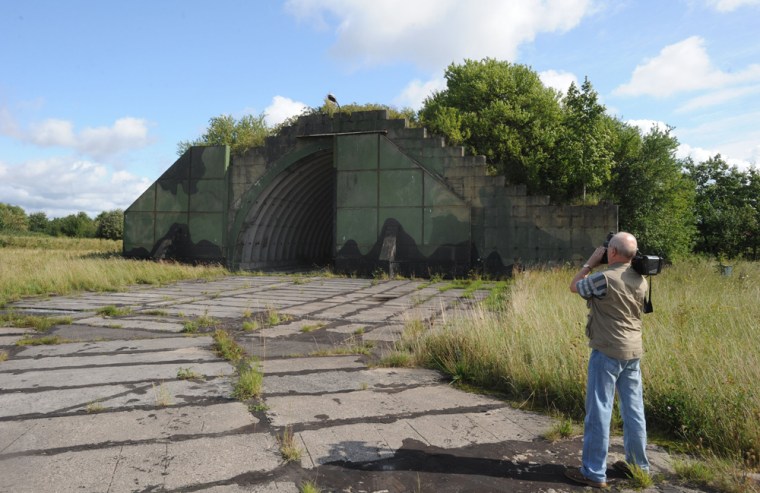President Barack Obama said Tuesday he has told Russia that reducing Iran's pursuit of a nuclear weapon would in turn lessen the need for a U.S.-planned missile defense system in Eastern Europe that Moscow has opposed. But Obama said he sought no "quid pro quo" with Moscow.
The new president also said it is time for the U.S. to "reset or reboot" its relationship with Russia, a nod to the increasingly tense relations of recent years.
Answering questions at a picture-taking moment in his meeting with visiting British Prime Minister Gordon Brown, Obama was asked about a letter he sent to Russian President Dmitry Medvedev regarding a series of mutual security concerns, including U.S. plans for deploying U.S. missile defenses in Poland and the Czech Republic.
"What I said in the letter is the same thing I've said publicly, which is that the missile defense that we have talked about deploying is directed towards not Russia, but Iran," Obama said. "That has always been the concern — that you have potentially a missile from Iran that threatened either the United States or Europe."
Obama disputed a published report that said he characterized his letter as "quid pro quo" with Russia, which has opposed the missile defense system. He said it was simply "a statement of fact."
He said lessening Iran's commitment to nuclear weapons "reduces the pressure for, or the need for, a missile defense system." But that, he said, does not diminish his own commitment to ensure that Poland, the Czech Republic or other NATO members enjoy full U.S. support with respect to their security.
More broadly, Obama said he has had a good exchange with Russia's leadership.
"I've said that we need to reset or reboot the relationship there," Obama said. "Russia needs to understand our unflagging commitment to the independence and security of countries like a Poland or a Czech Republic. On the other hand, we have areas of common concern."
The president said he wants a constructive U.S.-Russia relationship "based on common respect and mutual interests."
The Obama letter was first reported in Tuesday's editions of The New York Times.
No trade-off
Medvedev said he had talked with Obama over the phone and exchanged letters with him, but added that there was "no talk about some kind of trade-off, or quid pro quo."
"No, issues haven't been put that way, it would be unproductive," he said at a news conference Tuesday, which followed talks in Madrid with Spanish Prime Minister Jose Luis Rodriguez Zapatero.
Medvedev reaffirmed a strong opposition to the previous U.S. administration's plan to deploy a battery of missile interceptors in Poland and a related radar in the Czech Republic, saying the move would hurt security in Europe.
Medvedev said that Russia was encouraged by Obama's administration's readiness to discuss Moscow's complaints.
"Our American partners are ready to discuss this problem, and that's already positive," he said at a news conference. "Several months ago we were hearing different signals: The decision has been made, there is nothing to discuss, we will do what we have decided to do."
"Now I hope the situation is different," Medvedev added. "But no one is linking these issues to some kind of trade-offs, particularly on the Iranian issue. We are already working in close contact with our U.S. counterparts on the Iranian nuclear issue."
Obama and Medvedev are expected to meet at the G-20 economic summit of advanced and developing nations in London next month, according to senior administration officials.
A key U.S. lawmaker said Tuesday that Obama should keep open the possibility of engaging Iran directly, as Obama has said he would do. Sen. Richard Lugar, the top Republican on the Foreign Relations Committee, said the administration should consider the possibility of establishing a U.S. visa office or similar diplomatic presence in Iran.
"Such an outpost would facilitate more exchange and outreach with the Iranian people," said Lugar, of Indiana.
